Related Research Articles

Claudio Giovanni Antonio Monteverdi was an Italian composer, choirmaster and string player. A composer of both secular and sacred music, and a pioneer in the development of opera, he is considered a crucial transitional figure between the Renaissance and Baroque periods of music history.
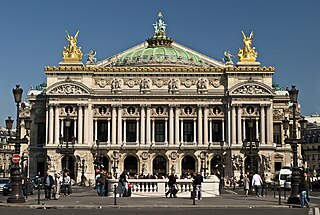
Opera is a form of theatre in which music is a fundamental component and dramatic roles are taken by singers. Such a "work" is typically a collaboration between a composer and a librettist and incorporates a number of the performing arts, such as acting, scenery, costume, and sometimes dance or ballet. The performance is typically given in an opera house, accompanied by an orchestra or smaller musical ensemble, which since the early 19th century has been led by a conductor. Although musical theatre is closely related to opera, the two are considered to be distinct from one another.
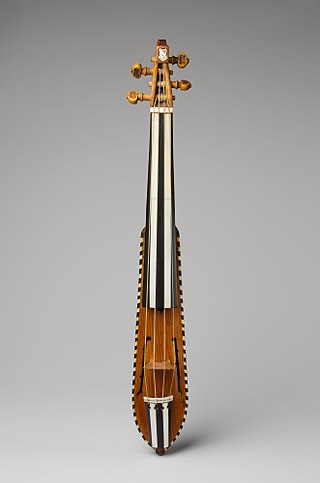
The pochette is a small stringed instrument of the bowed variety. It is essentially a very small violin-like wood instrument designed to fit in a pocket, hence its common name, the "pochette".

Orfeo ed Euridice is an opera composed by Christoph Willibald Gluck, based on the myth of Orpheus and set to a libretto by Ranieri de' Calzabigi. It belongs to the genre of the azione teatrale, meaning an opera on a mythological subject with choruses and dancing. The piece was first performed at the Burgtheater in Vienna on 5 October 1762, in the presence of Empress Maria Theresa. Orfeo ed Euridice is the first of Gluck's "reform" operas, in which he attempted to replace the abstruse plots and overly complex music of opera seria with a "noble simplicity" in both the music and the drama.
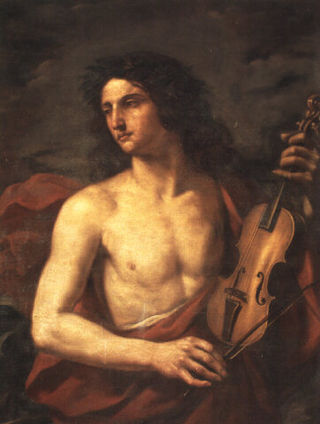
L'Orfeo, sometimes called La favola d'Orfeo[la ˈfaːvola dorˈfɛːo], is a late Renaissance/early Baroque favola in musica, or opera, by Claudio Monteverdi, with a libretto by Alessandro Striggio. It is based on the Greek legend of Orpheus, and tells the story of his descent to Hades and his fruitless attempt to bring his dead bride Eurydice back to the living world. It was written in 1607 for a court performance during the annual Carnival at Mantua. While Jacopo Peri's Dafne is generally recognised as the first work in the opera genre, and the earliest surviving opera is Peri's Euridice, L'Orfeo is the earliest that is still regularly performed.

Italian opera is both the art of opera in Italy and opera in the Italian language. Opera was born in Italy around the year 1600 and Italian opera has continued to play a dominant role in the history of the form until the present day. Many famous operas in Italian were written by foreign composers, including Handel, Gluck and Mozart. Works by native Italian composers of the 19th and early 20th centuries, such as Rossini, Bellini, Donizetti, Verdi and Puccini, are amongst the most famous operas ever written and today are performed in opera houses across the world.
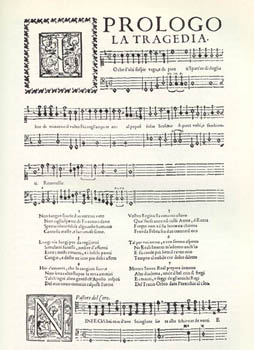
Euridice is an opera by Jacopo Peri, with additional music by Giulio Caccini. It is the earliest surviving opera, Peri's earlier Dafne being lost. The libretto by Ottavio Rinuccini is based on books X and XI of Ovid's Metamorphoses which recount the story of the legendary musician Orpheus and his wife Euridice.
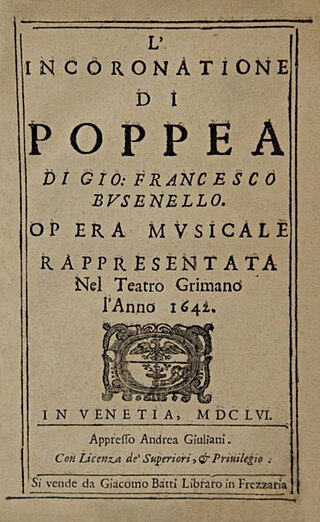
L'incoronazione di Poppea is an Italian opera by Claudio Monteverdi. It was Monteverdi's last opera, with a libretto by Giovanni Francesco Busenello, and was first performed at the Teatro Santi Giovanni e Paolo in Venice during the 1643 carnival season. One of the first operas to use historical events and people, it describes how Poppaea, mistress of the Roman emperor Nero, is able to achieve her ambition and be crowned empress. The opera was revived in Naples in 1651, but was then neglected until the rediscovery of the score in 1888, after which it became the subject of scholarly attention in the late 19th and early 20th centuries. Since the 1960s, the opera has been performed and recorded many times.
Michael Chance CBE is an English countertenor and the founder and Artistic Director of The Grange Festival.
Gaetano Guadagni was an Italian mezzo-soprano castrato singer, most famous for singing the role of Orpheus at the premiere of Gluck's opera Orfeo ed Euridice in 1762.

Giasone (Jason) is an opera in three acts and a prologue with music by Francesco Cavalli and a libretto by Giacinto Andrea Cicognini. It was premiered at the Teatro San Cassiano, Venice on 5 January 1649, during carnival. The plot is loosely based on the story of Jason and the golden fleece, but the opera contains many comic elements too.
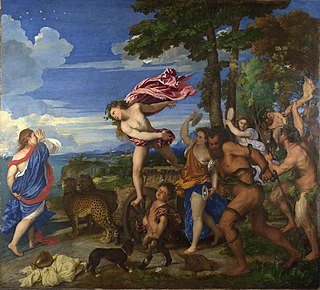
L'Arianna is the lost second opera by Italian composer Claudio Monteverdi. One of the earliest operas in general, it was composed in 1607–1608 and first performed on 28 May 1608, as part of the musical festivities for a royal wedding at the court of Duke Vincenzo Gonzaga in Mantua. All the music is lost apart from the extended recitative known as "Lamento d'Arianna". The libretto, which survives complete, was written in eight scenes by Ottavio Rinuccini, who used Ovid's Heroides and other classical sources to relate the story of Ariadne's abandonment by Theseus on the island of Naxos and her subsequent elevation as bride to the god Bacchus.
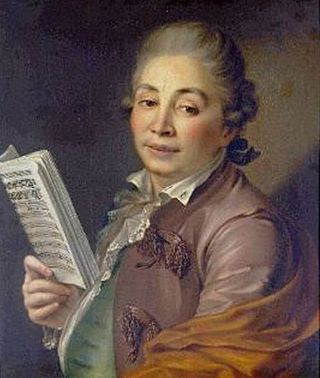
Vito Giuseppe Millico, called "Il Moscovita", was an Italian soprano castrato, composer, and music teacher of the 18th century who is best remembered for his performances in the operas of Christoph Willibald Gluck.

Eurydice was a character in Greek mythology and the Auloniad wife of Orpheus, who Orpheus tried to bring back from the dead with his enchanting music.
Giovanni Maria Bacchini was an Italian castrato, composer, writer on music, and Roman Catholic priest who flourished during the late 16th century and early 17th century.

The Italian composer Claudio Monteverdi (1567–1643), in addition to a large output of church music and madrigals, wrote prolifically for the stage. His theatrical works were written between 1604 and 1643 and included operas, of which three—L'Orfeo (1607), Il ritorno d'Ulisse in patria (1640) and L'incoronazione di Poppea (1643)—have survived with their music and librettos intact. In the case of the other seven operas, the music has disappeared almost entirely, although some of the librettos exist. The loss of these works, written during a critical period of early opera history, has been much regretted by commentators and musicologists.

Orfeo dolente is an opera by Domenico Belli to a libretto by Gabriello Chiabrera, an example of "representative style" of the early Baroque era. The work is divided into five interludes which were performed for the first time as intermedi in a performance of Torquato Tasso's play Aminta at the Palazzo della Gherardesca in Florence in 1616.
References
- ↑ Pryer, Anthony (2007) "Approaching Monteverdi: His culture and ours" in The Cambridge Companion to Monteverdi, p. 12. Cambridge University Press. ISBN 1139828223 "A more complex and intriguing interaction can be seen in Monteverdi's aria, 'Possenti Sprito' from his opera Orfeo (1607)"
- Gordon, Bonnie (2004). Monteverdi's Unruly Women: The Power of Song in Early Modern Italy, p. 157. Cambridge University Press. ISBN 0521845297
- Ossi, Massimo (2003). Divining the Oracle: Monteverdi's Seconda Prattica, p. 143 and passim . University of Chicago Press. ISBN 0226638839
- Pryer, Anthony (2007) "Approaching Monteverdi: His culture and ours" in The Cambridge Companion to Monteverdi , pp. 12–14. Cambridge University Press. ISBN 1139828223
